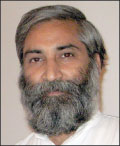|
|
|
ADVERTISEMENTS
|
|
PREMIUM
- HAPPY HOLIDAYS!
- Siliconeer Mobile App - Download Now
- Siliconeer - Multimedia Magazine - email-Subscription
- Avex Funding: Home Loans
- Comcast Xfinity Triple Play Voice - Internet - TV
- AKSHAY PATRA - Bay Area Event - Sat. Dec 6
- Calcoast Mortgage - Home Loans
- New Homes in Silicon Valley: City Ventures - Loden Place - Morgan Hill
- Bombay to Goa Restaurant, Sunnyvale
- Buying, Sellling Real Estate in Fremont, SF Bay Area, CA - Happy Living 4U - Realtor Ashok K. Gupta & Vijay Shah
- Sunnyvale Hindu Temple: December Events
- ARYA Global Cuisine, Cupertino - New Year's Eve Party - Belly Dancing and more
- Bhindi Jewellers - ROLEX
- Dadi Pariwar USA Foundation - Chappan Bhog - Sunnyvale Temple - Nov 16, 2014 - 1 PM
- India Chaat Cuisine, Sunnyvale
- Matrix Insurance Agency: Obamacare - New Healthcare Insurance Policies, Visitors Insurance and more
- New India Bazar: Groceries: Special Sale
- The Chugh Firm - Attorneys and CPAs
- California Temple Schedules
- Christ Church of India - Mela - Bharath to the Bay
- Taste of India - Fremont
- MILAN Indian Cuisine & Milan Sweet Center, Milpitas
- Shiva's Restaurant, Mountain View
- Indian Holiday Options: Vacation in India
- Sakoon Restaurant, Mountain View
- Bombay Garden Restaurants, SF Bay Area
- Law Offices of Mahesh Bajoria - Labor Law
- Sri Venkatesh Bhavan - Pleasanton - South Indian Food
- Alam Accountancy Corporation - Business & Tax Services
- Chaat Paradise, Mountain View & Fremont
- Chaat House, Fremont & Sunnyvale
- Balaji Temple - December Events
- God's Love
- Kids Castle, Newark Fremont: NEW COUPONS
- Pani Puri Company, Santa Clara
- Pandit Parashar (Astrologer)
- Acharya Krishna Kumar Pandey
- Astrologer Mahendra Swamy
- Raj Palace, San Jose: Six Dollars - 10 Samosas
CLASSIFIEDS
MULTIMEDIA VIDEO
|
|
|
|
|
SUBCONTINENT:
The Right to Self-Select: India's Food Security Act
India’s pledge to provide food grains to the underprivileged is hamstrung by inefficiency. The poor should be allowed to self-select, writes Sandeep Pandey.

The mainstay of the proposed Food Security Act towards fulfillment of Congress-led government’s election promise is 25 kg of food grains at Rs. 3 per kg to the BPL families. (BPL is an acronym for people living Below the Poverty Line. 1 kg equals 2.2 lbs. ) However, it is not clear whether it is a cause of elation or grief from the point of view of intended beneficiaries.
There are a number or problems with the BPL lists. First, there is a debate about the exact number of people falling under this category. The conservative estimates of the government are around 30 percent of the population. More realistically, it is close to 75-80 percent people. The government would obviously try to pull down the BPL as low as possible. The Planning Commission has now recommended a 37 percent cut off based on the Tendulkar Committee report. Second, the government BPL lists are faulty. They have been heavily infiltrated by undeserving people. Any attempts to rectify these lists are met with resistance by influential “beneficiaries.” Last time the Mayawati government tried to correct its BPL lists to ensure that deserving poor were not left out, there was so much hue and cry from the undeserving people who had managed to infiltrate not only the BPL lists but also Mayawati’s Bahujan Samaj Party, that political pressure ultimately forced the government to abandon the process prematurely.
Then there is large scale siphoning off of PDS — public distribution system — food grains. In February, 2006, hundreds of BPL cardholders with completely blank ration cards for the last five years held a demonstration at Sandila Tehsil of Hardoi district of Uttar Pradesh to demand their share of food grains. The Right to Information Act has come to the rescue of some aware citizenry who have used it to access their share of food grains. But the government has simply no idea of how to check leakages; neither does it seem to be interested in doing this.
So far as preparation of correct BPL lists or inclusion of deserving poor in BPL lists is concerned it doesn’t make any sense to conducted more exercises of surveys or set up any more committees and invest efforts and resources in doing this. The poor must be allowed to self select themselves. Akin to MNREGS — the Mahatma Gandhi Rural Employment Guarantee Scheme — if any poor family presents itself at the concerned government office they must be given a ration card on demand and the government must accept responsibility for providing subsidized food grains and other items to them. Of course, there will be misuse but the extent will not be more than 20 percent if we assume that about 80 percent of population deserves subsidized food grains. Now this will not be very much more than the misuse already taking place today which the government has no idea how to tackle.

The Right to Food Campaign is demanding that instead of giving a fixed amount of food grains, which is currently 35 kg per family, the allocation should be for every member of the family. The demand is for 14 kg of food grains, 1.5 kg of dal and 800 gm . of edible oil per person. Some people also argue that consumption by children, so far as food is concerned, should be considered on par with adults and therefore each child should be counted as an adult.
There is a demand, especially from non-wheat and rice eating areas to include other grains like jowar, bajra, ragi, makka, kodo, kutki, sama, etc., which are locally produced as part of PDS. In fact, this is a good reason why procurement and distribution of items under PDS must be localized. This will also cut down on the transportation and storage costs.
In fact, the government could use PDS to revitalize agriculture, which is still the biggest sector of employment for people in the country in spite of best efforts of the government to move people from the agriculture sector to industry and service sectors. The government should procure all locally produced grains at respectable minimum support price and all labor whether on one’s own field or somebody else’s must be suitably compensated under the MNREGS. This will not only mitigate the problem of agrarian crisis but also that of unemployment to significant extent. To prevent farmer suicides all agricultural loans should be interest free. For the workers this will allow them to access their legal guarantee of 100 days of wages under MNREGS which they are not able to do now.
The move by the government to provide cash instead of food grains as part of PDS is inappropriate. There is no guarantee that cash will reach homes and will be spent on food. Women and children are going to be most adversely affected by this. A very ingenious and innovative suggestion of the RtF Campaign is to assign ration cards in the name of women of the household. Corruption in cash scheme will be greater than in food grains scheme. It has already been demonstrated that possibility of corruption in cooked food schemes like mid-day meal is even less.
Finally, all religious places should have a Gurudwara-like langar system in place in which anybody, without any religious or caste restrictions, can go and eat. Beggars outside religious places should be served food respectfully in a langar with human dignity intact for both – the giver and the receiver. Such community based food programs are more likely to maintain quality and be free of corruption than any government program.
|
 Sandeep Pandey, a Magsaysay award-winning activist, is India editorial consultant for Siliconeer. Sandeep Pandey, a Magsaysay award-winning activist, is India editorial consultant for Siliconeer.
|
|
|
|
|
|